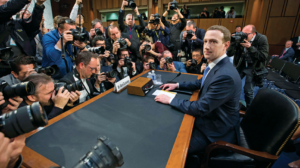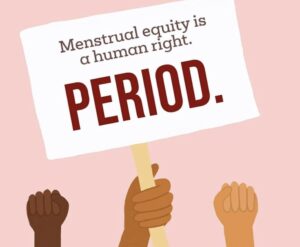
Photo courtesy of Saturday Night Live
With the frequency at which shows like “Saturday Night Live” mention the president, it would be easy to imagine that politics and comedy have always been as intertwined as they are now. It’s not that politics hasn’t always been a feature of comedy, but with the election of our most recent president and the increased media frenzy surrounding his administration, comedy about politics is being produced at an all-time high. This bump in production has, in turn, resulted in a bump in ratings and can be seen almost across the board in television. Just by being elected, Donald Trump has created an appetite for more pointed, partisan comedy.
SNL, as pictured above, is one of the most notable examples of the political comedy bump. Its 42nd season, which debuted Alec Baldwin’s Trump impression and had to deal with his election, is the highest rated in the show’s history and drew in an unprecedented jump in viewership. The casting of Baldwin, a temporary high-profile guest star who couldn’t feasibly appear every week, over a regular cast member is a testament to how sure many liberals were that Hillary would defeat Trump. Although his appearances attract more viewers and have earned him multiple awards, it’s becoming harder and harder for him to appear on the show, especially given his other ventures. So far, he hasn’t decided to end his popular run as the character, appearing just last week to parody Trump’s meeting with Kanye West, but the end might be in sight.
Unlike recent seasons, SNL’s 42nd season was also especially successful in comparison to other shows on the air, becoming the second most watched comedy in the 2016-2017 season, losing only to “The Big Bang Theory”. SNL is known for being at its height during election years, with 2008 and Tina Fey’s Sarah Palin character being especially loved, yet falling in quality after the president has been elected. In the current political climate and all the drama surrounding the Trump administration, however, SNL has found it all too easy to satirize the government and continues to ride the wave until even now, in the midst of Trump’s reign.
SNL isn’t the only comedic outlet to experience the benefits of the political comedy bump. Late night talk shows such as “The Late Show with Stephen Colbert” and “Late Night with Seth Meyers” have each experienced an uptick in ratings since Trump first stepped on to the political scene, with many tuning in to watch hosts like Colbert and Meyers rip in to Trump and his administration with expertly written jokes that provide a harsh commentary while also offering collective catharsis. Colbert and Meyers especially have benefited from the Trump-era politics, as they each found their niche in the late-night scene with their persistent tearing apart of Trump and his entire administration. With Colbert coming from political-fueled shows such as “The Daily Show” and “The Colbert Report” and Meyers coming from the satire-news segment of SNL itself as well as being SNL’s head writer for many years, they both have a background in political comedy that has served them well in the Trump times.
Colbert’s take on Trump has provided “The Late Show” with the biggest late-night bump of all, even knocking Jimmy Fallon’s “Tonight Show” out of first place. Colbert has been one of the most vocal anti-Trump hosts but incorporates enough of his own witty comedy that his attacks don’t come off as pure left-wing rants. This technique allows Colbert to draw in the anti-Trump crowd while also keeping the show light and cheerful. Meyers, on the other hand, has experienced his uptick in ratings for his scathing segments tearing into the Trump administration and its actions. His ‘Closer Look’ segment has proven to be especially popular, where he breaks down a recent news story while incorporating his own incredulous disbelief that this could possibly be happening. Meyers doesn’t have the comedic charisma of Colbert or Fallon, which caused “Late Night” to suffer in the earlier parts of his run, but by leaning into his political commentary and general affability, Meyers has also been able to ride the Trump wave to higher ratings.
What does this all say about the Trump administration? Why this president? Why now? The answer can be boiled down to a mix of fear, anger, and uncertainty. With Trump’s approval ratings being the lowest of any sitting president in history, it’s clear that the country is unhappy with him. To appease this anger, they turn to people who can provide a harsh criticism of Trump while also injecting humor into the situation, so they can feel vindicated while also laughing. Trump, and the intense divisiveness he has caused is arguably the best thing to happen to comedians in years.
– Anissa Weisel



